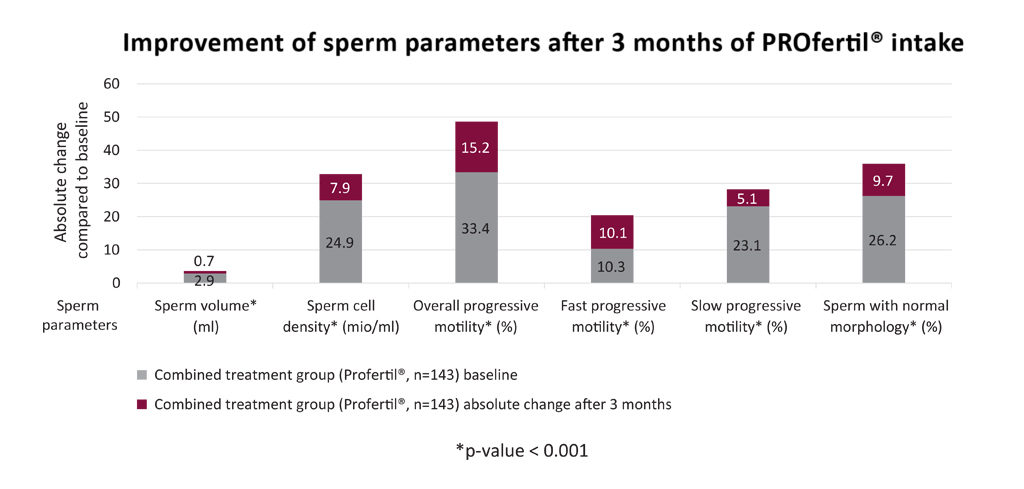“Comparison of the effect of a combination of eight micronutrients versus a standard mono preparation on sperm parameters”
L-carnitine Study 2016
Markus Lipovac, Florian Bodner, Martin Imhof and Peter Chedraui
10–15% of couples trying to achieve pregnancy remain childless (51). Male factor accounts for nearly half of cases of infertility presenting an abnormal semen analysis. In 45% of sub-/infertile men, this disorder is of unexplained (unidentified) origin (4, 52). In a Cochrane review, it has been reported that antioxidant supplementation in sub-fertile males may improve the outcomes of live birth and pregnancy rate for sub-fertile couples undergoing ART cycles (53). The suspected mechanism of action is the improvement of sperm quality through the alleviation of the nutrient deficiency as well as the reduction of oxidative stress (11).
Results:
All studied sperm parameters (volume, density, overall progressive motility [including slow and fast motility]) and % of sperm with normal morphology significantly improved after 3 months of treatment in both groups as compared to baseline (p<0.001). However, relative change (expressed as % increase of absolute values) for sperm density and overall progressive motility (including fast motility) was found to be higher for the combined micronutrient treatment group as compared to the mono-treatment group using L-carnitine alone (p<0.05).
Conclusion:
Overall effect on sperm parameters was similar in both analyzed groups. In the PROfertil® group improvement of sperm density, overall and fast progressive motility was significantly better than those in the mono-preparation group.
Practical benefits:
In subfertile men, nutritional support with PROfertil® may



